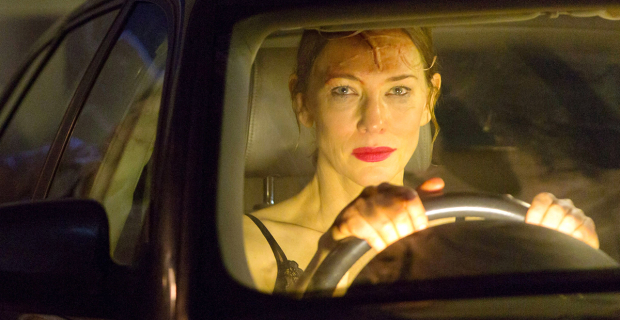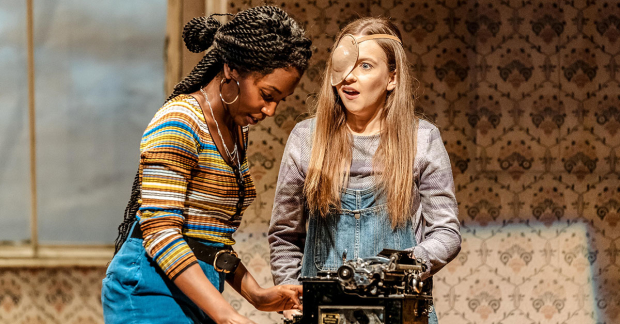Review: When We Have Sufficiently Tortured Each Other… (National Theatre)

© Stephen Cummiskey
The news that Cate Blanchett was to star in a new play by Martin Crimp in the Dorfman, the National Theatre's smallest auditorium triggered a box office feeding frenzy that could only be solved by putting applications into a ballot. And on the opening night her appearance attracted an audience that included Uma Thurman and Ben Whishaw.
But never has the distance between the glamour of movie star casting and the earnestness of the play she is appearing in seemed wider. Crimp's text may require Blanchett to stalk the stage in underwear, strap on a sex toy and simulate various sex acts; her co-star Stephen Dillane spends a lot of the night in a frock. Yet sex and violence have rarely seemed so dull.
It is the theories of Foucault, Freud and radical feminists who command the space, not the activities of the Marquis de Sade. An elderly woman who apparently fainted at an earlier performance may have been shocked by the all-purpose porn, but she was possibly equally thrown by the need to be up to date with pro sex feminism and the latest gender theories. It is the weirdest mix.
Now I am something of a sucker for intense, bleak discussion, so I was fairly gripped by some of the arguments, particularly the play's relationship to Samuel Richardson's 1740 novel Pamela from which it takes its subtitle (12 Variations on Samuel Richardson's Pamela) and its themes. That book, the first bestseller, was about a servant who repeatedly protects her virtue against a master who tries unsuccessfully to rape her and eventually declares his love and proposes marriage.
Here we are miles from there, in a suburban garage, complete with Audi, where Blanchett, Dillane and four others are engaged in a series of sex games. Vicki Mortimer's set and James Farncombe's lighting recall the photographs of the American photographer Gregory Crewdson (reproduced in the programme), which create scenes in which normal life resolves into unsettling tableaux. They are real and unreal simultaneously. In the same way, the couple and their colleagues enact scenes of submission and domination, that explore the shifting relationships between the sexes and ask questions about consent and dominance. It is never clear what is play and what is felt. Fierce emotion is triggered but each encounter is broken by the flicking on of the garage's fluorescent lights, which act as both a marker and a safety mechanism.
Crimp and Katie Mitchell, who directs with earnest precision, cover a lot of ground. From the first moment that Blanchett and Dillane clamber into the car, in blonde wigs and waitress uniforms, the nature of male and female encounters is under the microscope. But so too is the nature of storytelling, the way that words change depending on who is saying them and who controls their writing down.
There is a lot of interesting chat, but the trouble is that apart from occasional explosions of slightly baffling violence, it all unfolds at the same pace. Dillane has a great moment when he talks about going shopping for cherries and you suddenly sense the world outside the room, where order is breaking down, and where the divisions between rich and poor have become absolute. He is mesmeric, the slow treacle of his voice pulling you in. But there are too few distinctive moments; mainly he is asked to be quietly worried or vaguely grumpy and spends a lot of time breaking down elegantly.
As for Blanchett, she puts her charisma and commitment entirely in the service of the play. You can see why it appealed. She gets to change voices, to play the master as well as the servant, the man as well as the woman. She acts submissive and dominant, cringing and powerful, beautiful and ugly. She is terrific but it isn't enough. Despite her best endeavours – and those of Jessica Gunning, who brings real aplomb to her scenes as Mrs Jewkes, the woman who is both Pamela's jailer and her admirer – the evening feels much longer than its two-hour running time.
So much effort and care has gone into it, yet it is too prolix and solemn to shock, to incite, or to engage. At least the thousands who were disappointed not to get a ticket can heave a sigh of relief. They are not missing much.

















